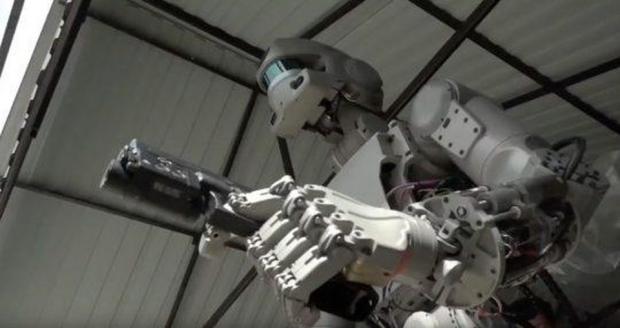
Breaking News
 Windows 10 is DEAD in 2025? -- Here's How I Run It SAFELY Forever (No Updates)
Windows 10 is DEAD in 2025? -- Here's How I Run It SAFELY Forever (No Updates)
 GENIUS ACT TRIGGERED: The Biggest BANK RUN in History is COMING – Prepare NOW
GENIUS ACT TRIGGERED: The Biggest BANK RUN in History is COMING – Prepare NOW
 European Billionaires Funneled $2 Billion into NGO Network to Fund Anti-Trump Protest Machine
European Billionaires Funneled $2 Billion into NGO Network to Fund Anti-Trump Protest Machine
 Japan Confirms Over 600,000 Citizens Killed by COVID mRNA 'Vaccines'
Japan Confirms Over 600,000 Citizens Killed by COVID mRNA 'Vaccines'
Top Tech News
 HUGE 32kWh LiFePO4 DIY Battery w/ 628Ah Cells! 90 Minute Build
HUGE 32kWh LiFePO4 DIY Battery w/ 628Ah Cells! 90 Minute Build
 What Has Bitcoin Become 17 Years After Satoshi Nakamoto Published The Whitepaper?
What Has Bitcoin Become 17 Years After Satoshi Nakamoto Published The Whitepaper?
 Japan just injected artificial blood into a human. No blood type needed. No refrigeration.
Japan just injected artificial blood into a human. No blood type needed. No refrigeration.
 The 6 Best LLM Tools To Run Models Locally
The 6 Best LLM Tools To Run Models Locally
 Testing My First Sodium-Ion Solar Battery
Testing My First Sodium-Ion Solar Battery
 A man once paralyzed from the waist down now stands on his own, not with machines or wires,...
A man once paralyzed from the waist down now stands on his own, not with machines or wires,...
 Review: Thumb-sized thermal camera turns your phone into a smart tool
Review: Thumb-sized thermal camera turns your phone into a smart tool
 Army To Bring Nuclear Microreactors To Its Bases By 2028
Army To Bring Nuclear Microreactors To Its Bases By 2028
 Nissan Says It's On Track For Solid-State Batteries That Double EV Range By 2028
Nissan Says It's On Track For Solid-State Batteries That Double EV Range By 2028
Russia is aiming to replace human soldiers with 'faster and more accurate' robot ...

A top Russian researcher has claimed that 'faster and more accurate' robots will replace their soldier 'brothers' in combat on the battlefield.
'Living fighters will gradually begin to be replaced by their robotic 'brothers' who can act faster, more accurately and more selectively than people,' Vitaly Davydov told local media in April. Davydov is the deputy director of Russia's Advanced Research Foundation.
Davydov has said robotics will be the future of military conflict due to their increased speed and because they can be more accurate in target selection.
Russia will begin testing their newly developed robot, the Marker UGV, towards the end of this year.
In July last year, the country also sent an humanoid droid into space.
'There is a still-classified Russia's military robotics road-map that sketches out various stages of Russian unnamed military developments, which undoubtedly has been influenced by Russian military actions and experience in Syria,' Samuel Bendett, an adviser at the Center for Naval Analyses, told Forbes.

 Carbon based computers that run on iron
Carbon based computers that run on iron

